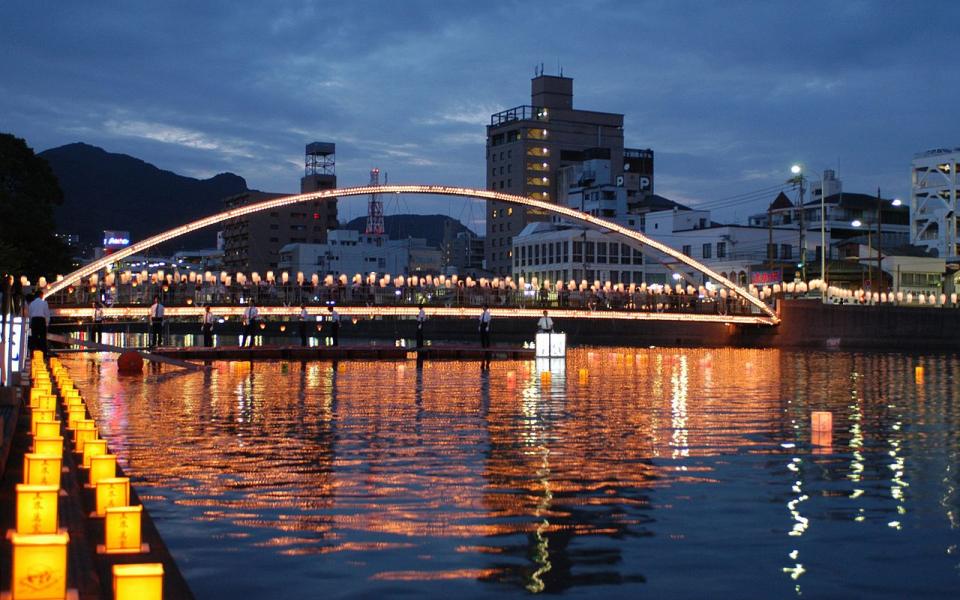
Obon is a Japanese Buddhist occasion to honor one’s ancestors. It originates from a story about one of the Buddha’s disciples who learned that his deceased mother was suffering in the afterlife. The disciple asked the Buddha how he could help his mother’s spirit, and was told to make offerings to the Buddhist monks who were just finishing their summer retreat. Not only did the disciple release his mother’s spirit, but he gained more appreciation for his mother’s sacrifices and all the love she showed him in her life. Therefore, Obon is celebrated as an appreciation of one’s deceased loved ones at the same time each summer. (The exact dates depend on different interpretations of the solar and lunar calendars by culture, but usually fall in July or August.)
Celebrations vary by region, but many people celebrate Obon by hanging lamps in front of their houses (to guide the spirits who are said to return each year to visit their still-living relatives) and by floating candles in rivers and lakes (to guide the spirits back into their own world). Leaving food and gifts by graves, temples, and altars is also common, as well as making sure gravesites are clean and well-kept. The Bon-Odori dance is also often performed at Obon, as well as fireworks displays.
In this photo, volunteers in Nagasaki, Japan place candle-lit lanterns into the Sasebo River during Japan's annual summer Obon festival.
Learn more about our Cooperation Circles in Japan and beyond, where URI members are celebrating Obon along with their Buddhist friends.
